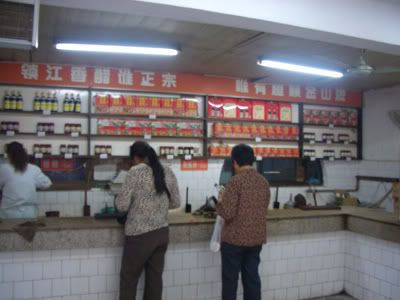I boarded the 10.14am train from Wuxi to Zhenjiang. On this trip, I will be taking the China Railway High-Speed (CRH) for the first time. It is called 动车组 in Chinese, being able to travel up to a top speed of 250kph. But on this 45 minutes ride, it reached a maximum of 201kph. The cost is 33RMB for a one way journey.
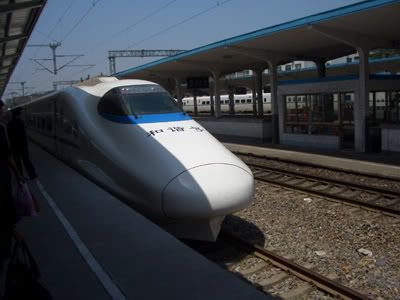
Golden Hill Temple (金山寺)
The first stop is to the Golden Hill Temple (金山寺). A taxi ride from the train station cost only 7RMB with the entrance ticket being valued at 50RMB. I noticed there is a free shuttle service from the Golden Hill Temple to Beigushan Temple (北固山寺) at a regular 30 minutes interval. Golden Hill Temple was originally located on an island on Chang Jiang river, but with regular silting over the centuries, it became attached to the mainland.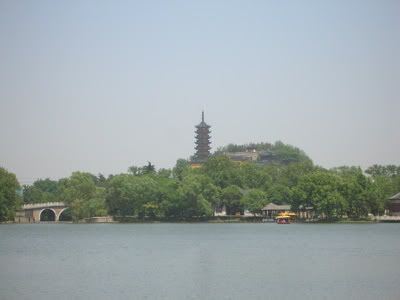
Golden Hill Temple is surrounded by a large garden where visitors can choose to visit the other famous attraction - First Spring (天下第一泉) or go on straight to the temple. Here is the main temple entrance.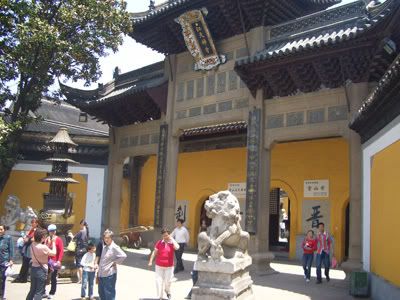
Incense wafted through the temple entrance. Giving the temple gate a heavenly ambience.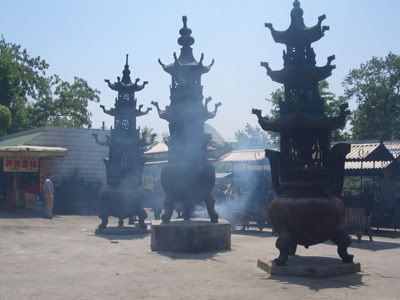
The temple layout is arranged based on traditional Chinese temple architecture. With the 4 Heavenly Kings forming the entrance hall. Past the hall of Great Strength, there are steps leading up to the temple top. Small temple bells were dropped from the edges of the temple roofs. The whole compound resonate with melodious harmonics when the wind blows.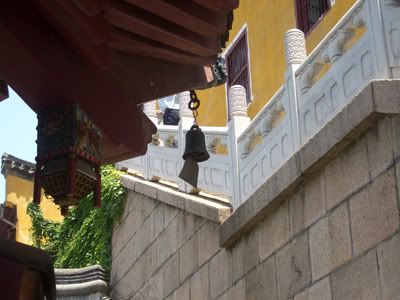
The unique design the of Golden Hill Temple is that the temple buildings basically surround and occupy the entire hill.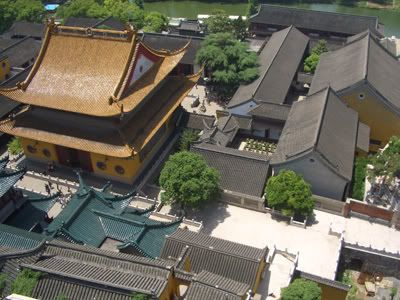
Midway up the hill, there is another entrance for visitors to view more sights. An additional topup of 8RMB is needed for visitors to proceed. There are a few more popular sights in this area. First is the cave of Fa Hai (法海). It is said the first abbot of the temple spent years meditating in this cave.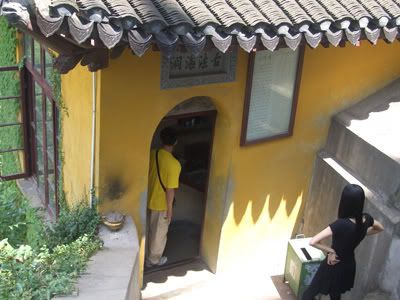
At the top of the hill is an ancient pagoda, said to be rebuilt towards the start of the 20th century for Empress Ci Xi. It is 7 storeys and based on an octagonal design.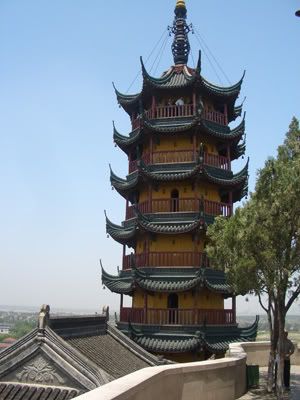
Back down from the mountain, there is a memorial hall dedicated to the recent abbot of the monastery. There is a beautiful fountain directly in front of the memorial hall.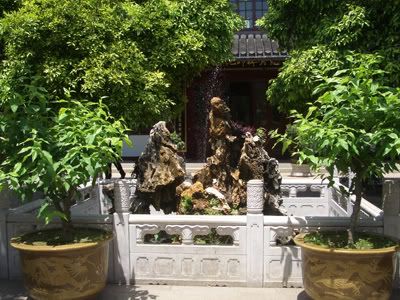
My next goal here is to visit the First Spring. Though the travel books offer the option of taking a boat ride to the island where the First Spring is located, but I prefer to try walking there. The island is located in the middle of a lake but it is accessible by a small pathway at the edge of the lake. It takes approximately 10 minutes to get there.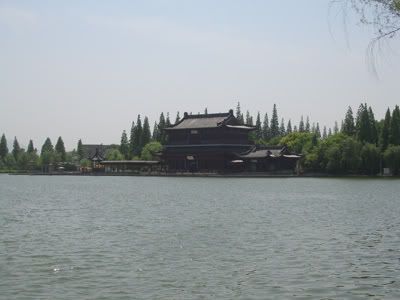
Here is the First Spring. I have seen it at last!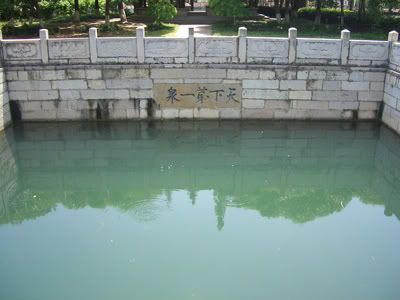
Beigushan Temple (北固山寺)
My next stop is Beigushan. It is so named because of a metal pagoda that has been around for centuries. Unlike Golden Hill Temple, Beigushan is directly next to the Chang Jiang river. It cost 40RMB for the entrance.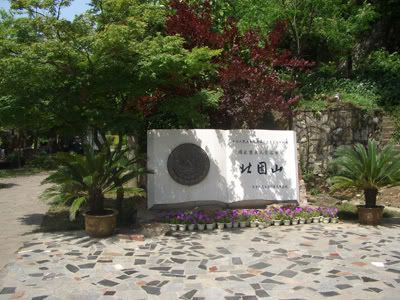
Beigushan is surrounded by a beautiful park where visitors can enjoy a pleasant stroll through it before climbing up the gentle hill to the top.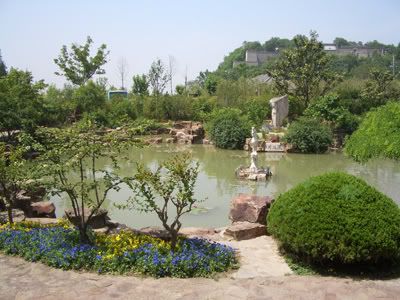
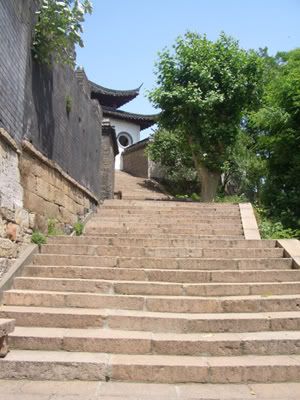
Here is the ancient pagoda. It is a small pagoda barely 3 metres tall.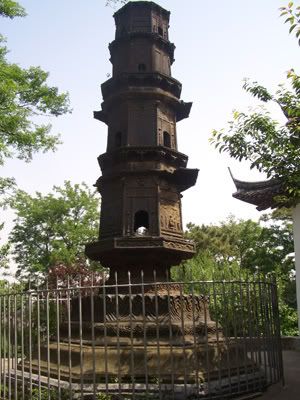
There is a temple at the top of the hill. The cemented slopes give this place a fortress feel.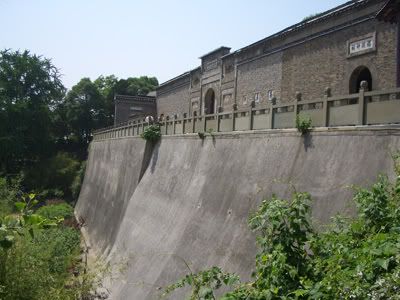
Here is a view of the majestic Chang Jiang river. It is long, winding, yet quiet and mysterious; having travel almost through the entire breadth of China and is finally completing its journey at the East China Sea.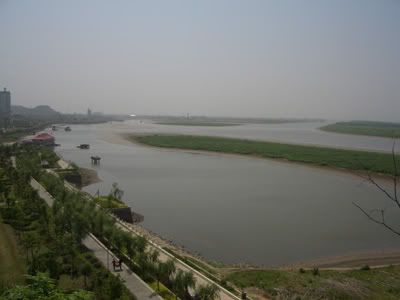
Jiaoshan (焦山)
After that is to Jiaoshan. Jiaoshan is now what used to be Golden Hill Temple centuries ago. It is an island in the Chang Jiang river. Here is a map of the island and the mode of transport to the island. The entrance is 50RMB.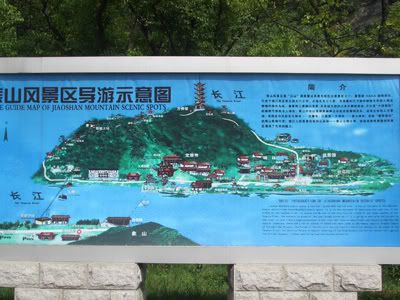
There is also a beautiful park leading to the ferry. It has a very quiet lake just a short distance walk from the entrance. Many passer-by noted that this lake should be very rich in minerals due to the unique green glow coming from it.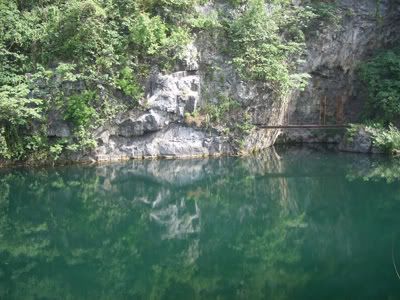
Boarding the ferry...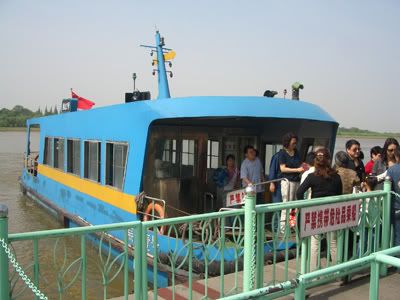
The island Jiaoshan.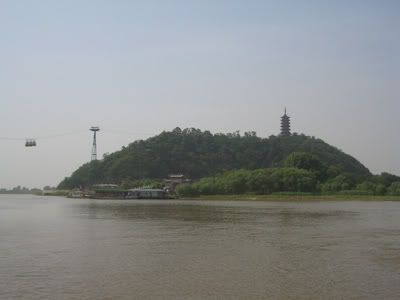
Much of the temple structures have been refurbished and it looks amazingly new. The temple layout is also based on traditional temple architecture. Here is the entrance that greeted visitors who alighted from the ferry.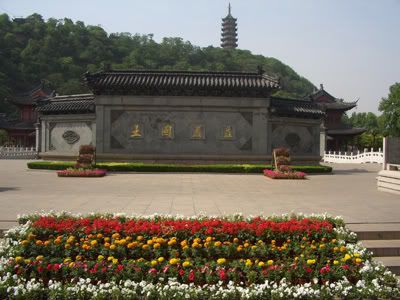
Past the entrance is the main temple hall.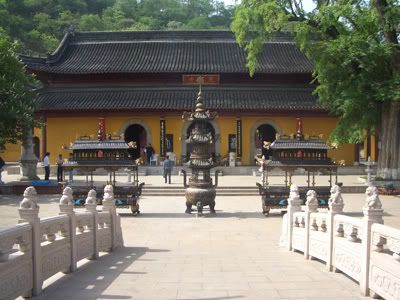
This is a slightly higher mountain as compare to the Golden Hill temple and the Beigushan. But visitors should be able to reach the mountain top in 5 minutes.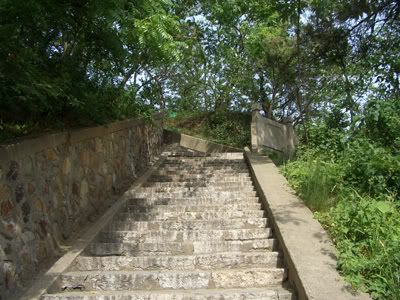
A newly constructed Pagoda is the prominent feature of the mountain top. It is the 10,000 Buddha Pagoda with each level dedicated to a Bodhisattva or Buddha. It cost an additional 18RMB to scale the Pagoda.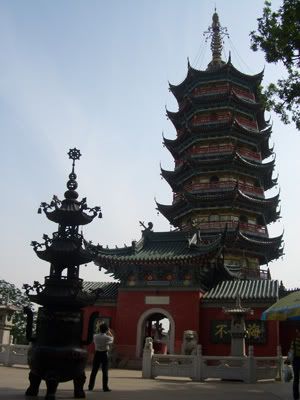
From the top, the temple layout and its environs can be clearly seen.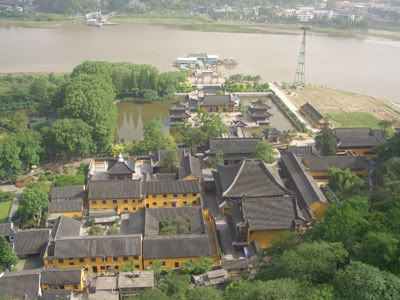
Down the mountain from the east, Jiaoshan was historically also noted for its defensive positions. These are cannon hole up areas which are directed towards the invaders.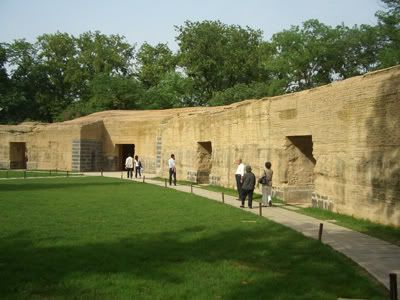
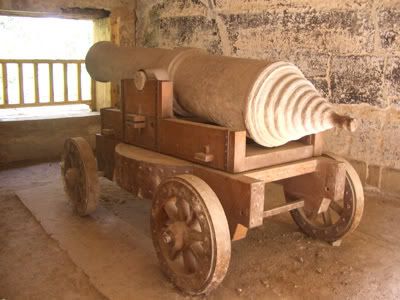
There are several gardens and traditional chinese houses unique to the Jiangnan area.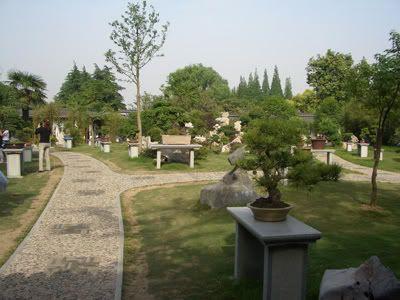
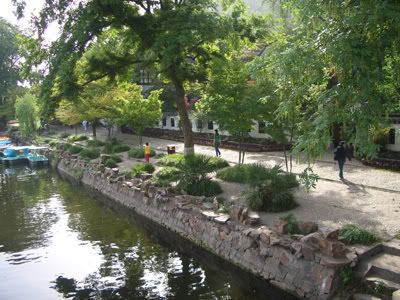
Old Street (老街)
The final stop for the day is to visit the old street of Zhenjiang. It is located just a distance away from Golden Hill Temple. Most notably noted for its 19th century streets which was used widely for tradiing. 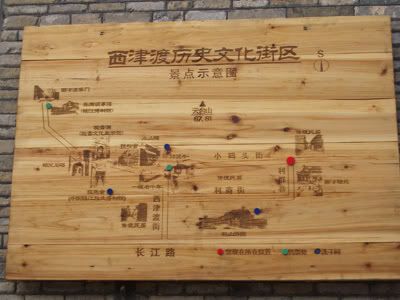
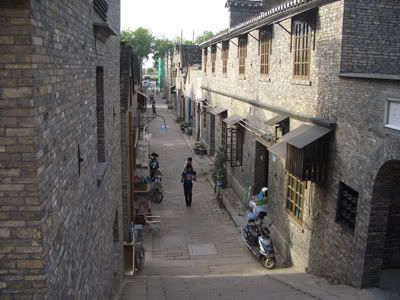
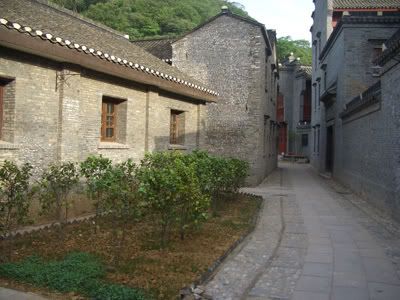
There is also a chinese temple in the center of the old street but with a Tibetan style white pagoda.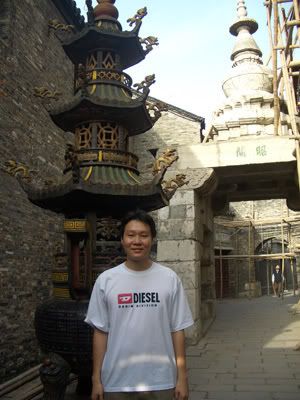
At the end of the street is the red-brick British embassy.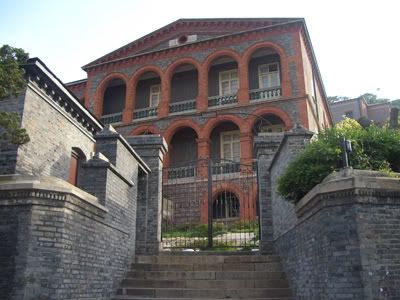
From the end of the street just next to the Zhenjiang museum, visitors can hop on public bus no. 2 which travels through several historical sights and the city centre. It cost just 1RMB for the entire journey.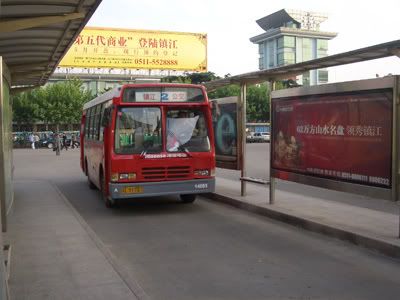
One unique observation is that the streets in Zhenjiang are narrow and shady, with canopies interlocking to provide a cooling greenery house to the city.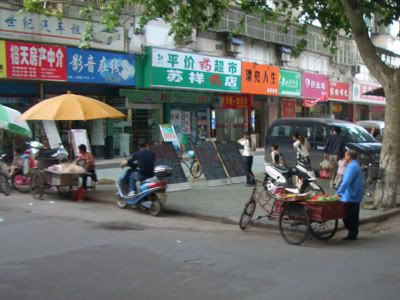
Here is the city centre.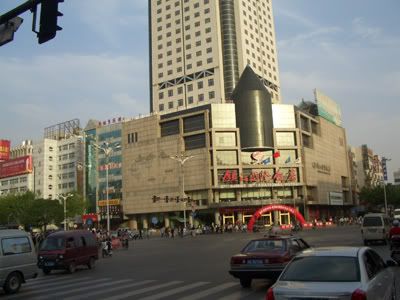
I alighted at the famous vinegar production factory which is one stop from the train station. The smell of vinegar permeates through the entire area. There is a shop just next to the main entrance which sells all variety of vinegar.